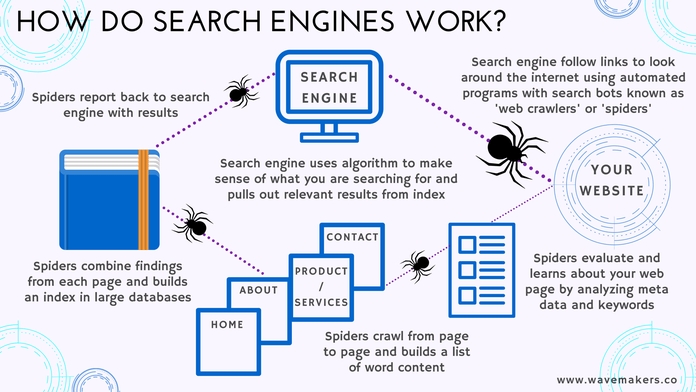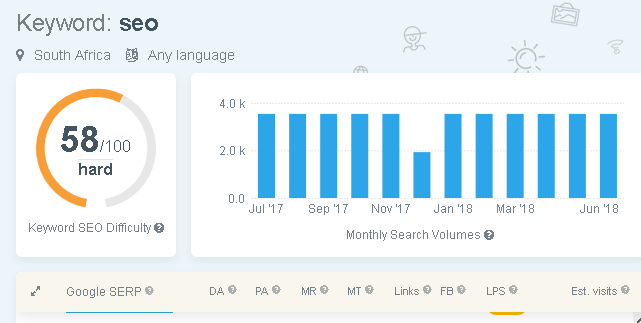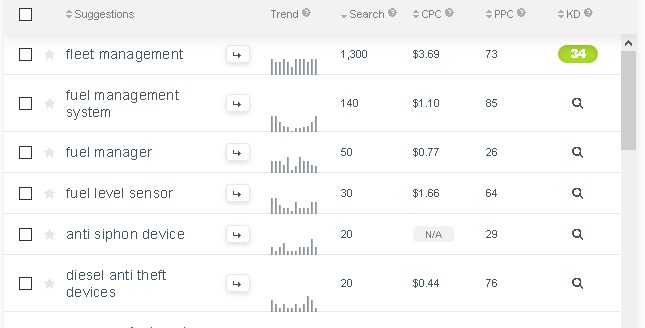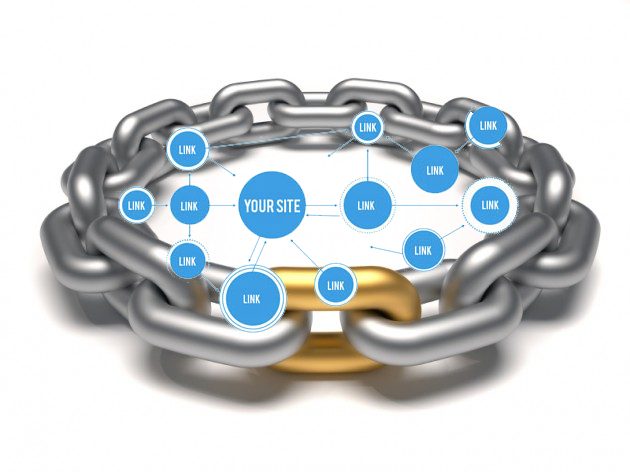SEO
-
What is SEO
-
How Search engines work
-
Onsite SEO
- Keyword research, SEO starts here
- Content
- Urls: Domain name - Site meta Data- Internal linking - Website load time
- Offsite SEO Backlinks Social media
- Advertising offline
- Email marketing
- Content writing
What is SEO
SEO (search engine optimisation) covers all aspects of work done to increase traffic or improve a website’s ranking and position in organic (free) search engine search results with the aim to be listed on the first page or top ten results of a search for a specific keyword or phrase.
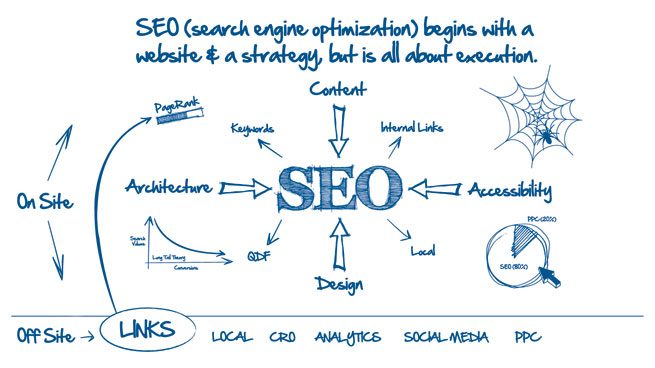
SEO will involve work done on page or on site and off site to promote a website or page’s online presence.
Website SEO has evolved over the years and requires greater effort to rank higher in search engine results than in the past, and will most likely become increasingly difficult in the future.
I have in the past with very little SEO effort managed to get websites to show up in the first ten results of a Google search for reasonably competitive words or phrases in a short time period but those days are gone.
Early day SEO didn’t require as much effort as it does today. Like the early gold rush all you needed was a shovel and a pan and you could strike it lucky, now you need to invest more and dig deeper to get your pot of gold.
With Google continually updating how and what data is shown in its search results, and just the sheer volume of competition on the internet to have any sort of presence, SEO has become challenging. Having a good SEO knowledge and strategy is essential for any site to survive or to be able to compete online.
A Google search for the keyword “SEO” will show the approximate number of results of pages competing for the SEO keyword, and at the time of this article there are about 130 000 000 pages in the results for SEO, so getting on the first page is no easy task.
Try doing a search for keywords in your industry or words you think people would use to hopefully land on your site, after this exercise you should realise how important understanding SEO is and the effort required to outperform your competitors from the design of the website, the content, links and many other aspects.
If you think that by just having a good looking website, reasonable content and lots of products will get your site found, you have already failed.
In this article I will cover all the essentials that you need to know to give you the advantage over your competitors online, but if you are expecting some magic bullet or secret to get your site on the top of Google searches without effort, then this article is not for you.
The best way to approach SEO is to take it one step at a time and to keep at it, it’s not difficult it just takes effort. Most website owners either don’t have the time or are not prepared to put in the extra effort to get to the top of the SERPS. Take advantage of this an get your site on page one. Anybody can be good at SEO.
How do search engines work.
Understanding the basic principles of how search engines work may not help you with your SEO but should give you an understanding of why all aspects of SEO are important.
A search engines function is to index information and provide what should be the best results of that indexed information when a user performs a search.
Search engines like Google work on an algorithm when indexing a website to determine where that website or pages of the website will show in the search results. An algorithm is a set of rules and calculations that are followed to get a desired result. Some aspects of SEO may carry more weight than others in the algorithm so quite often the parts of SEO that are less important are overlooked, but this may cost you your position on the first or even the second page of the search results.
There are calculations in the algorithm that are out of your control and may seem unfair, like older domains normally getting a better score than new ones, but this is only a small part of what search engines look at so implementing a better SEO strategy those on older domains can get you listed above them, and in time your domain will gain trust and be on equal footing for the domain page. Natural links to your website or page are links other people create to your site normally from other domains, this is essentially also out of your control but by providing useful information and content of interest or value will gain you links in time.
Concentrate on aspects of the algorithm you can control - the basics are keyword research, good content, on page SEO, and link building.
Onsite SEO
This covers all the aspects of SEO that are on your domain or specific pages, and includes everything from the website design to the content. The online content, navigation, and look and feel should be designed primarily for your visitors. You want your visitor to have a positive user experience while also implementing and optimising your SEO strategy for search engines. What factors are considered onsite or on page SEO?
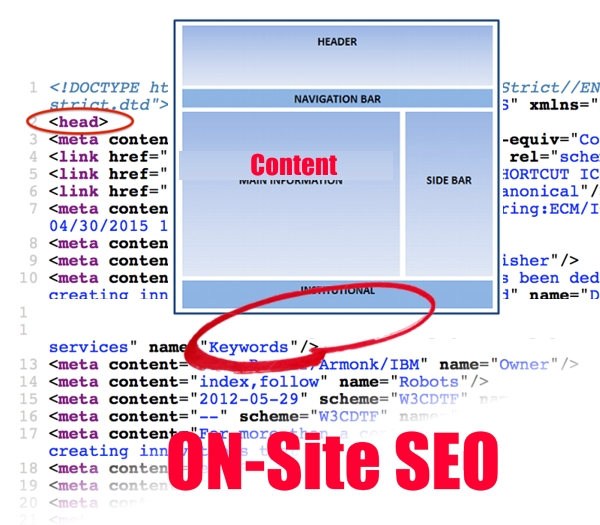
-
Keyword research, content creation and content structure.
- Titles, url’s meta information
- Internal linking structure and navigation
- Website load speed and ease of use
Keywords and Keyword research
The best place to start your SEO strategy is with keyword research
Why? – you want to structure your content around keywords and key phrases that people are most likely to use when searching for your product or services and you want to target words that have a higher search volume and lower competition level.
You get various free and paid tools to help with your keyword research or you can do it manually .
List of keyword research tools to help with SEO
Deciding on keywords
Your most obvious choice for keywords are the keywords that describe your product or service.
These are keywords people are most likely going to use in their searches to find your website.
If you sell a brand that is new or not well known don’t use the brand name as the main keyword to target, there are most likely not going to be any searches for that keyword.
Example:
We have a client who sells anti siphon devices - don’t feel bad if you don’t know what that is, I didn’t either.
An anti Siphon device is a diesel theft prevention kit, after some keyword research “fleet management and fuel management” were used as a key phrases. From not having a single enquiry for over two years we targeted the new key phrase and within a month and a half the site started receiving enquiries and orders from the website and continues to perform well.
"Anti siphon" has a very low search volume locally and doesn't justify a SEO efforts
new tageted keyword "fleet management" has a higher search volume and and is still regood description relativly easy to target locally adding in a description as fuel theft prevention as part of fleet management will increase visitors and conversions.
This is a good example of a key phrase with low competition making it easy to target and show up on the first page of a Google search even with very little content. If there was higher competition a lot more content would be needed to feature in the search results.
If you sell a well-known brand you can target the brand name and what the product is or does using key words with the highest monthly search volume.
Example of HP Notebook Sales
Keywords Targeted
HP notebooks
HP Laptops
Notebooks for sale
The Keyword research was also zoned for South Africa only, so if you are only supplying to your local market the competition is generally easier so don’t try and compete with the world (If you do a Google search from South Africa most results will be South African domains or businesses)
Key Phrase research results
HP laptops is the key phrase that would be the easiest to target with a good amount of search volume and the most likely to generate the most traffic.
If your product doesn’t have any keywords that are easy enough to target or no keywords with enough search volume write articles around your product or service like advice on how to use the product.
Let’s take for example you sell peanut butter the keyword peanut butter is highly competitive for only 1600 searches (Search volume is small zoned for South Africa). You would almost certainly be wasting your time targeting peanut butter. Instead write around your products. Target a key phrase like peanut butter cookies which has double the amount of monthly searches and by far less competition to get visitors to your site, and market your peanut butter as the best peanut butter to make those cookies.
Keyword research is important for your SEO so don’t waste your time creating content blindly hoping there are enough people searching for what you have to offer.
Once you have identified the keywords you want to target you are ready to start with your content
Content

Content in my opinion is one of the highest ranking factors in SEO. Google‘s aim for search results is to provide the best content for a given search, so give Google what they want.
Now you’ve spent days writing better content than any of your competitors for your chosen keywords and its indexed by Google but you are still not on the first page. Why?
Google is getting smarter all the time but it still doesn’t know your content is better. Google uses other signals to determine quality content like the number of links to your page, the amount of visitors and what the visitors do on your page how long do they stay and where do they go next.
So writing good useful content will gain you links and keep visitors on your site longer to gain extra points in the calculation of your site’s ranking .
Without good content you SEO efforts will be wasted.

For new sites that don’t have any authority it is important to manually promote your pages, get links send out mail shots even advertise off line, once you start getting visitor and your content is good your ranking will automatically increase.
This is where most website owners give up after reading blogs and post on SEO and trying all different tips and trips with nothing to show for it in the end.
This is when you need to persevere once you get past this stage it does become easier although still requires loads of work it is rewarding to see visits to you site increase.
What you need to do is continue writing content targeting keywords that may not have as much search volume as you would like but have less competition, it’s better to have 10 pages all getting 100 visitors each a month than to trying to create content for high volume but completive keywords and not getting any visits at all. Google likes new and fresh content if you continue adding content on a regular basis your site will be indexed more often and if you have done your SEO correctly you should see your traffic increase. Eventually you will be ranking well for more competitive keywords with a higher search volumes, so don’t give up.
The more content you create the easier it becomes to create new content, like physical exercise the more you keep at it the fitter you become and the easier it gets.
When it comes to content don’t be afraid to share your knowledge , I’m not saying you must part with your trade secrets but make a genuine effort to share information that will benefit your target audience you will be surprised by the results.
After all why do people use search engines, to find information so provide the information and you will have a website that people go to.
I am often asked how long you article should be for SEO.
There is no set number of words that I know about but as a rule of thumb more words than your competition and the more competitive a keyword is the longer the article should be. Low competition keywords can have very little content and still be listed in the top 10 results.
So to sum-up keep adding new, relevant and interesting content
Urls, Page Titles - metadata
Every page has specif url or web address using you keywords in you URL will go a long way.
Using search engine friendly urls is good SEO practice and helps search engines determine how to index you site.
Example of a no search engine friendly URL
Example of a search engine friendly URL
Page title
Page titles are very important for getting your page indexed for your chosen keywords. It doesn’t mean that if you have the perfect page title your site will be first on Google search results, but if you don’t include your keywords in your page title chances are that your page will never show up in the search results for that keyword. As part of any onsite SEO all page titles will have keywords in them, even the contact us page, don’t just have Contact US as the page title, for example if you sell paint your page title for the contact us page should be something like “Contact Us For more Info on our Paint”
Take the time to add meta data to your pages
Meta data is used to provide search engines with information about your site or page.
Meta keywords will give Google the keywords you want to target.
Meta Description will not help with ranking but it describes what your page is about to users and can help in getting potential visitors to click on your link.
If you don’t manually add your meta keywords and descriptions as part of your SEO, Google will determine what to use from your content, and if the content is well structured this should work well.
Internal Linking
Most sites have a simple structure with a menu on the top or side of the content to link you to the relevant pages.
But it’s a good idea to add links from within your content to related content as this will help with your page authority and add to you site’s SEO effort.
When using links, whether from text or images, you need to be optimised for search engines so use alt text or alt tags - alt text will describe what the image is and what the link is going to be about.
Website load time
Try to make sure your website loads quickly - don’t use unnecessary elements on your website and optimise the size of your images to load quickly. If you have a website that takes long to load you will be penalized by Google and have frustrated visitors.
These are all simple SEO practices but should not be ignored.

